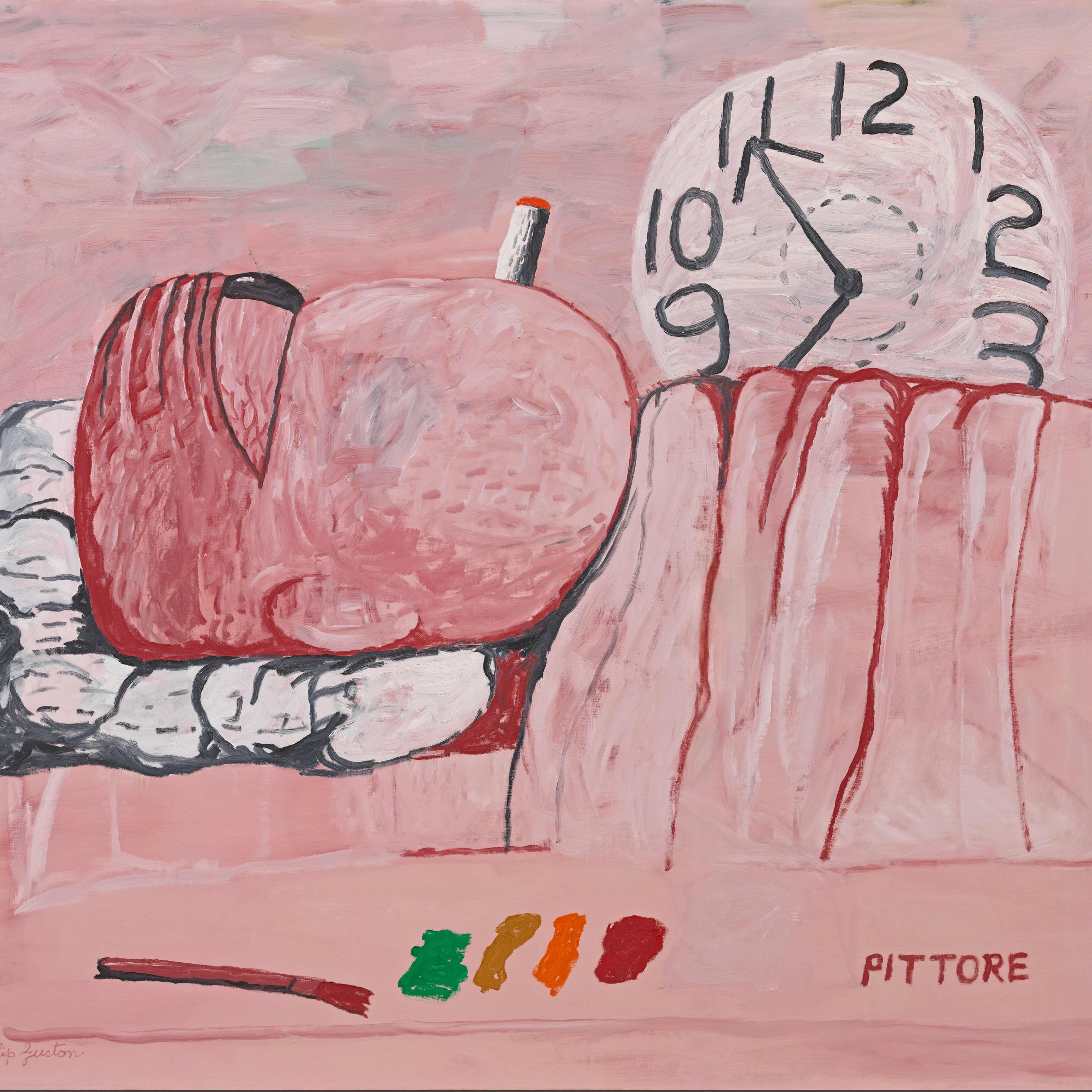Philip Guston (1913–1980) was born in Montreal to immigrants who had fled the persecution of Jews in Odessa, in present-day Ukraine, a decade earlier. Raised in Los Angeles, he worked in the Midwest for part of the 1940s and settled permanently in New York in 1949, dividing his time between Manhattan and his studio in Woodstock. Although Guston is often associated with Abstract Expressionism, his career is too expansive to be understood solely in relationship to that movement. By the late 1960s, he was forging a singular path.
This installation, which features eight works created during the last eleven years of Guston’s life, celebrates an extraordinary promised gift of two hundred and twenty paintings and drawings from the artist’s daughter Musa Guston Mayer. Thanks to Mayer’s generosity, The Met will become the largest repository of Guston’s work and the future center for its study.
Guston consistently interrogated his purpose and identity as an artist, giving rise to a self-reflexive body of work that embraces both abstract and representational content. He grappled openly with symbols of evil and prejudice and explored the experience of mortality and vulnerability, especially in the late work seen here. Guston’s art engages unflinchingly with some of the most distressing aspects of human nature. At the same time, there is great pleasure to be had in his paintings, whose colors, brushwork, and materiality indulge close looking. Contradictions such as these go to the heart of Guston’s practice, endowing it with aesthetic and philosophical urgency.
#MetGuston
Featured Content
Musa Guston Mayer takes us into the studio of her father, the artist Philip Guston, reflecting on her relationship with him and the future of his legacy.
